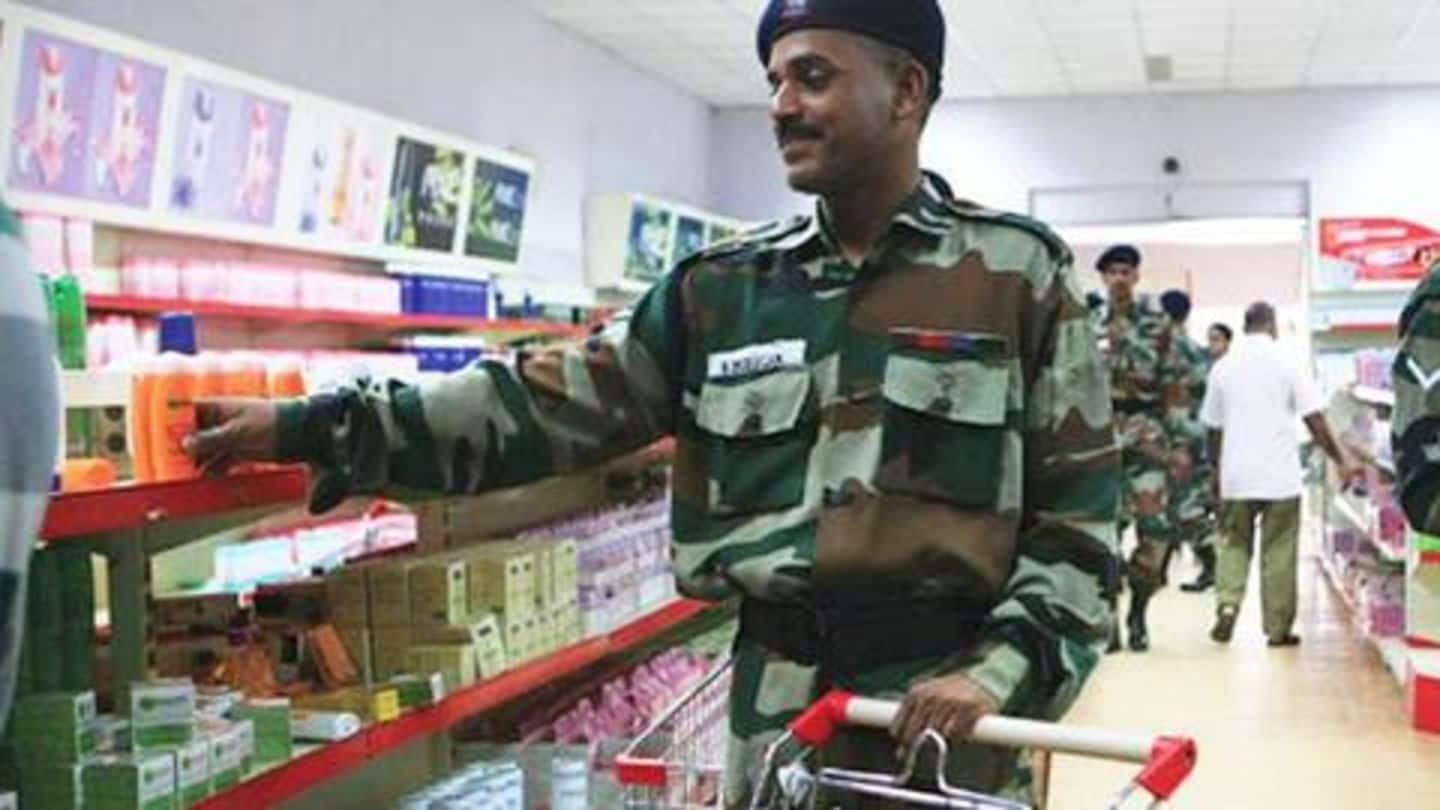
MHA withdraws order delisting non-Swadeshi items from CAPF canteens
What's the story
Amid a push for Swadeshi (homegrown) goods, the Ministry of Home Affairs on Monday released a list of over 1,000 foreign goods that will not be sold by the Kendriya Police Kalyan Bhandar (KPKB) from June 1.
However, mere hours after making the list public, the Ministry withdrew it since a number of items were reportedly found to be Indian.
Here are more details.
Order
MHA called for de-listing of 1,026 'non-Swadeshi' items
According to the order dated May 29, the MHA called for the de-listing of 1,026 'non-Swadeshi' items from KPKB—the parent body that runs paramilitary canteens across India.
Products were divided into three categories: products purely made in India; raw material imported but manufactured/assembled in India; and purely imported products.
The list of banned products/brands included Nutella, Kinder Joy, Tic Tac, etc.
Revision
List put on hold as it included Indian products
The MHA has asked the Central Police Welfare Board to put the list on hold.
According to NDTV, the order was withdrawn after the list ended up banning several Indian products such as those from Dabur, Bajaj, and Usha.
A new list will be issued soon.
A senior MHA functionary told NDTV that an officer "took out the order without consulting the Ministry."
Twitter Post
'Action being initiated for lapse'
It is clarified that the list issued by Kendriya Police Kalyan Bhandar on 29th May 2020 regarding de-listing of certain products has been erroneously issued at the level of CEO. The list has been withdrawn and action is being initiated for the lapse: Chairman, WARB-cum-DG CRPF
— ANI (@ANI) June 1, 2020
History
Pro-Swadeshi push came after Modi's 'vocal for local' call
On May 13, the MHA had declared that over 1,700 Central Police Canteens (CPCs) across India will only sell Swadeshi products from June 1.
The move was announced after Prime Minister Narendra Modi's push to be "vocal for local."
The CPCs record an annual business of around Rs. 2,800 crore by selling products to 50 lakh family members of about 10 lakh paramilitary personnel.